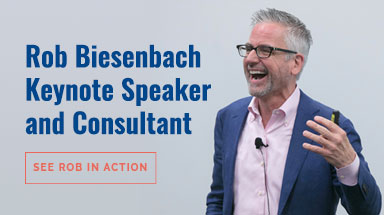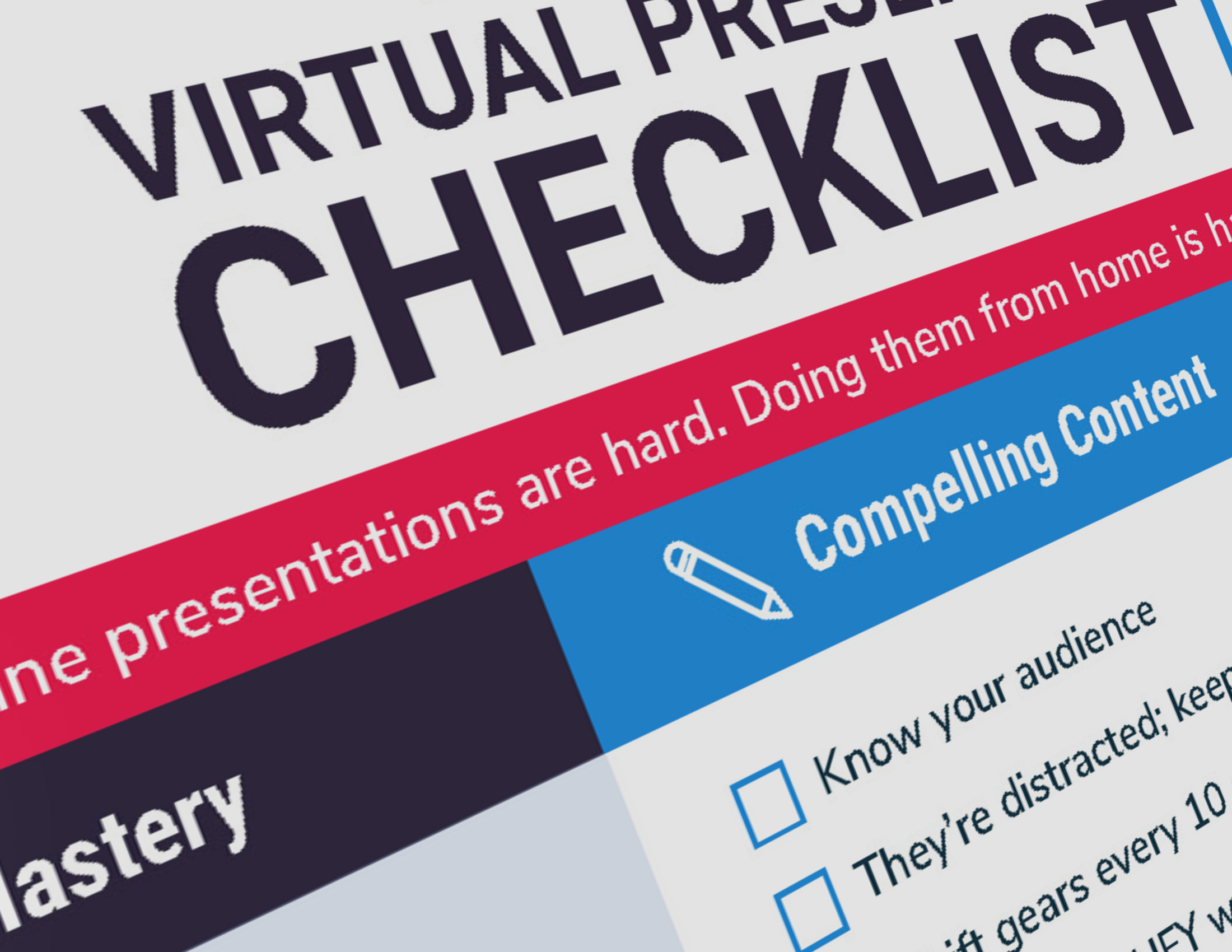
Here are some of my latest pet peeves — the mistakes most presenters make at conferences I attend. Mistakes that undermine their credibility and authority.
This list is by no means exhaustive, by the way!
Relying on Conventional Wisdom
Quick quiz. Are the following statements true or false?
- We only use 10% of our brains.
- Oscar Wilde once said, “Be yourself. Everyone else is already taken.”
- President Lincoln hastily scribbled the Gettysburg Address on the back of an envelope on the train ride to the ceremony.
The answers? False, false, and false. Here’s the truth:
- Sadly, we don’t have a huge reserve of untapped brainpower just waiting to be unlocked with some secret key.
- There’s no evidence Oscar Wilde said anything of the sort. (If you know his work, it doesn’t even sound like him!)
- Even a master orator like Lincoln had to put in the work on his speech.
Yet factoids like these are repeated so frequently we just assume they’re true, and we don’t hesitate to pass them along to others. But in an era of “fake news,” it is everyone’s duty to be as scrupulous as possible about the facts.
So don’t be part of the problem. Google any claim you haven’t verified. Use sites like Snopes to sniff out urban legends and Quote Investigator to nail down those “too good to be true” quotations.
Your audiences deserve nothing less than the truth.
A Lackluster Opening
In the first minute of a presentation, audiences are making up their minds about whether to give you their full attention or tune out and return to their screens. Don’t waste those precious seconds with extraneous comments about the weather, the venue, your travel travails or a long list of thank yous.
Grab their attention from the start with a story that underscores the theme or goal of your presentation. Multiple studies confirm that stories have the power to break down walls, build trust and influence people to act.
In my practice, I’ve found clients are often uncomfortable starting immediately with a story. They feel they must first provide some background, context or other setup — whether it’s an agenda, their bio or directions to the buffet.
But all those details can be covered later. Start instead with your version of, “It was a dark and stormy night:”
- “I’ll never forget my first day on the job …”
- “My mother always told me …”
- “You won’t believe what happened to me on the way here …”
And whatever you do, resist the urge to kick it off with, “Let me start with a story” or “This is a story about …” Just start storytelling.
Lack of Preparation
To earn a reputation as a reliable, knowledgeable expert, you have to demonstrate not just fluency with your subject matter, but fluidity in the way you present it. And that only comes with practice — hours and hours of practice.
Practice on your feet and out loud. Practice in your head, everywhere and often — in the car, on the train, at the gym. Internalize the ideas, plan the transitions, play with your structure. Practice, practice, practice.
How do you know if you need more practice? Watch for these signs:
- Do you need to see your next slide to know what to say?
- Does your mind go blank at any point?
- Is your delivery marked by fits and starts?
If you want to get better, try the five-step rehearsal process I use. The goal is to get to a place where you can sustain consistent forward momentum throughout your presentation. That level of mastery signals authority, and it’s immediately recognizable to audiences.
Not Making the Most of Gesture and Expression
Always remember that in an age of easy distraction, you need to use every tool at your disposal to convey your ideas. That includes the words you say, the slides on the screen, and the gestures you use.
Participants in my workshops often worry that they’re gesturing too much. But the bigger problem is not gesturing enough. Expansive gestures are an outward manifestation of what you’re thinking and feeling inside. They indicate a positive mental and emotional state, and should flow freely.
On the other hand, it also pays to be strategic in the use of your hands, arms and legs:
- When listing points, count them off with your fingers. (And if you have more points than fingers on one hand, considering cutting your content!)
- When comparing and contrasting two concepts, gesture from one side of your body to the other.
- For a particularly important point or powerful personal story, step forward to create more intimacy and impact.
Though these tips may sound basic, keep in mind that audiences are only half-listening, so a few simple actions can go a long way toward improving understanding.
Fumbling with Technology
Don’t let all your hard work get spoiled by a technology glitch. More than half the presentations I see are marred by some technical flaw that wastes the audience’s time and embarrasses the speaker.
Here’s how to avoid the most common tech mistakes:
- To reduce the chance of a system crash or sluggish performance, reboot your computer before your talk.
- Arrive early and test everything — projection screen, sound, video, microphone.
- Never, ever rely on wifi (like playing videos straight off YouTube, for instance).
- Buy a remote so you’re not tethered to the lectern.
- Position your computer screen in front of you so you’re not staring at the projection screen behind you.
Other Mistakes Presenters Make
These tips just scratch the surface. Other common mistakes presenters make include:
- Lack of energy.
- Ugly slides.
- Sloppy structure.
- Too much content.
- Misreading the audience.
- A weak closing …
I could go on and on. And I do, at every opportunity! If you’re struggling to become a more effective speaker, if you dread getting up to talk in front of groups, if you want to project more confidence and authority, I urge you to get in touch.
I’ve helped hundreds of leaders become more powerful, persuasive presenters so they can win over customers, colleagues and the other audiences that matter most to their business and their career. Chances are, I can help you, too.
[Photo by Abigail Keenan on Unsplash]
[This post is based on a story that first appeared in PRSA’s Strategies and Tactics]




